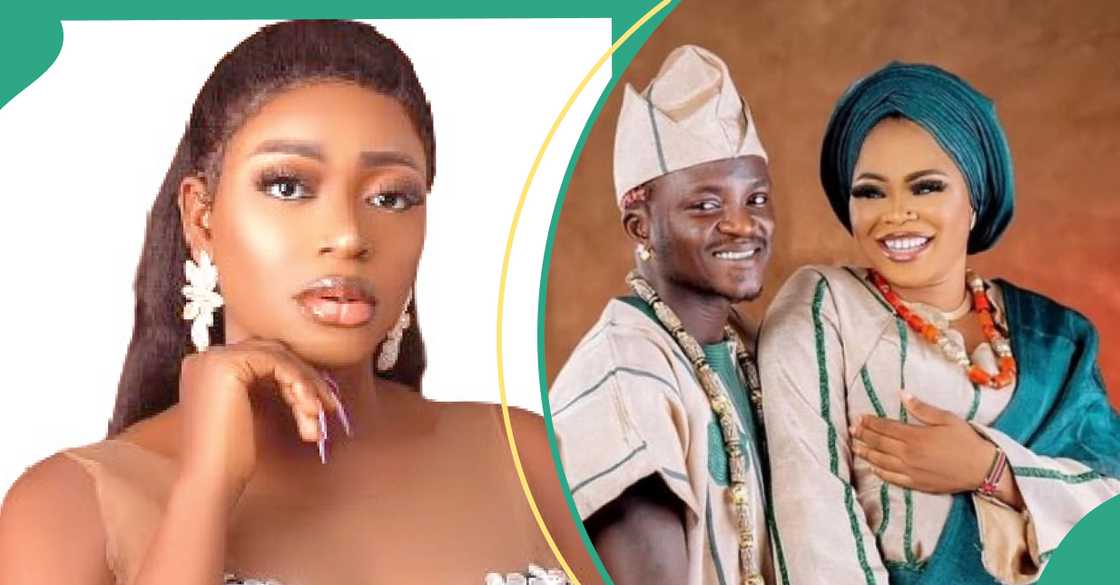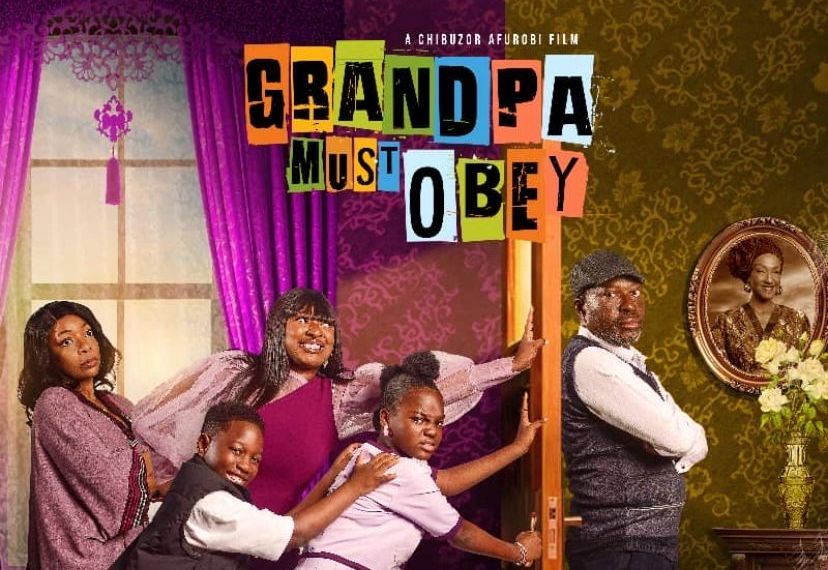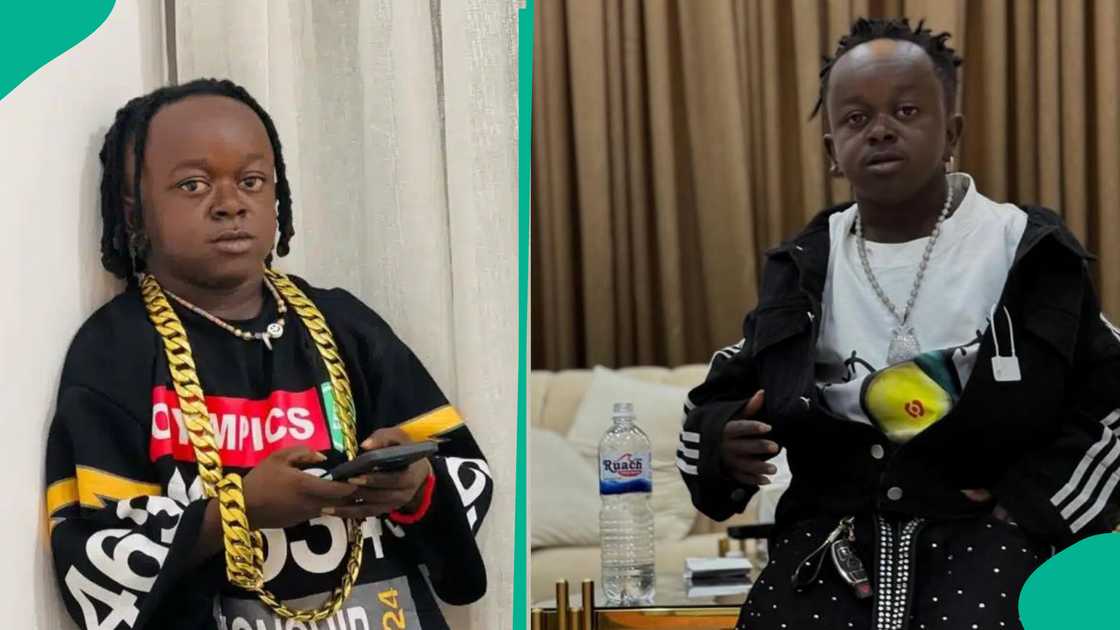Well-known Nigerian singer Portable, renowned for stirring controversy and commanding attention online, is once again at the centre of heated social media discussions. The spotlight this time falls on his public confrontation with his fourth baby mama, Ashabi Simple, over allegations that she disrespected his wife, Bewaji.
The tension erupted after Ashabi reportedly shared a somewhat ambiguous post on social media, which many interpreted as casting subtle aspersions at Bewaji. The cryptic nature of Ashabi’s statement prompted netizens to suspect that there was more to the message, leading to a flurry of interpretations on platforms like Instagram, Facebook, and Twitter, where fans speculated she was “throwing shade”.
What started as a discreet social media post rapidly caught fire, igniting debates around family boundaries and respect within polygamous homes, a topic that resonates across Nigeria given the country’s diverse marital structures and cultural norms.
Portable’s response was swift and direct. Refusing to let the perceived slight slide, he addressed Ashabi in a voice message that quickly circulated online. The Zazu crooner used strong language to reprimand his baby mama, issuing a stern warning for her to steer clear of any behaviour that threatens the harmony in his household and to show due respect to Bewaji, whom he regards as his principal partner.
Translating his words, the singer said: “Don’t ever disrespect my wife, Bewaji. She is always minding her business. She was the only woman who stood by me when I had nothing. She is always satisfied with anything I give her, unlike you, who doesn’t appreciate me. Are you mad? Do you want Ogun to kill you?”
In his passionate remarks, Portable made it clear that his loyalty to Bewaji is unshakable, pointing out that she has stood by him from his earliest days, supporting his growth both personally and professionally. According to Portable, her unwavering commitment is why she occupies a unique and respected position in his life. He further stressed that if Bewaji had not given her approval, his relationship with Ashabi might never have taken off, highlighting the hierarchy of relationships in his family structure and echoing a sentiment familiar in many Nigerian homes where wives and partners often negotiate complex dynamics.
“I am a married man. If you want me to marry you too, you must fight for it. If my name is removed from your life, who will you be? You need to behave and appreciate Bewaji. If she didn’t approve you, you would not be with me today because her happiness is my happiness. You got pregnant and I accepted you. What else do you want? Stay in your lane.”
Addressing the situation in a previous report, Ashabi Simple pushed back against rumours that she was desperately trying to hold onto her relationship with Portable. She confronted claims suggesting she was forcing herself on the singer, challenging critics by posing a rhetorical question about whether it is possible to keep a man who does not want to stay.
In her own words:
“Any small thing, you dey force love ni yenyenyen 😉 can you keep a man who doesn’t want to be kept?”
Ashabi’s recent post was reportedly triggered by online gossip that accused her of clinging to Portable against his wishes. The narrative underscores a familiar struggle faced by many women in public relationships in Nigeria—navigating media scrutiny, public perception, and the challenges of maintaining dignity in the face of online backlash.
However, she went on to appreciate God for blessing her with her significant other, writing:
“Thank GOD for the blessing of my man, I’m grateful ☺️.”

Source: Instagram
Netizens react to Portable’s outburst
Portable’s public rebuke quickly drew reactions from social media users, particularly on Instagram, where discussions around celebrity lives often dominate pop culture conversations. Comments ranged from support for Bewaji to criticism of Portable’s approach. The debate reflects the polarized views many Nigerians hold on issues such as polygamy, public confrontation, and the expectations placed on public figures.
Here’s a cross-section of the reactions compiled from netizens:
mzz.bea said:
“Omo!!!!! Imagine being told off by this guy…”
mayphillip14 said:
“😂😂😂😂😂😂😂 Omoh I don’t even know what to comment oo.”
booknetwork_ said:
“We have good and educational children new|preloved books to help them learn and spark their creativity and imagination.”
luxury_thrift_avenue said:
“Na every quarter them dey always fight…. See the man the lady cannot do without 😂😂😂 na him dey always rubbish her.”
adam_amirabkr said:
“This thing sweet me die 👏.”
The broader dialogue isn’t just about celebrity drama. Many see it as a microcosm of issues prevalent in Nigerian society, where family matters often spill into the public domain, and where social media amplifies personal disputes, sometimes with unintended consequences for all parties involved.
Ongoing Controversy: Portable and Nigerian Celebrity Rivalries
This incident is not the first time Portable’s interactions with others have ignited online debate. In a previous installment of celebrity drama, Portable reportedly threw subtle shade at superstar Davido, just days after Davido had treated him to a dinner during his trip to the United States. The pair were seen in viral videos, highlighting camaraderie, before Portable’s later remarks contrasted Olamide and Skepta’s support for him with that of Davido’s—in Portable’s view, Olamide and Skepta lent a more genuine helping hand without flashy outings, focusing instead on practical support and prayer.
Davido and Portable’s relationship thus became another trending topic, provoking further speculation about alliances and rivalries within Nigeria’s competitive music industry. This hints at the broader context of the entertainment industry, where public gestures and behind-the-scenes support often carry significant meaning, and where artists carefully navigate loyalty and competition.
The wave of reactions that typically follows such events is emblematic of the deep interest Nigerians have in the personal lives of their celebrities. According to a Lagos-based culture analyst, “Issues like these reflect deeper questions about respect, loyalty, and social conduct—issues that people across Nigeria face daily, both online and offline.”
Social, Cultural, and Global Implications
Polygamy, public confrontation, and social media call-outs are not unique to Nigeria, but the ways in which these issues play out in the country reflect its unique blend of tradition and modernity. As Nigerian celebrities migrate between local traditions and globalized pop culture, their personal challenges become touchpoints for social debate. Other African countries, especially those with vibrant entertainment industries like Ghana and South Africa, frequently experience similar episodes that spark both amusement and serious reflection among fans and critics alike.
The fact that these disputes unfold openly online also demonstrates how digital platforms are reshaping public conversation in Africa. For millions of youths—who make up over 40% of Nigeria’s population—social media is not just a place for entertainment but a forum for discussing values, expectations, and the evolution of relationships in the 21st century.
Family, Fame, and the Court of Public Opinion
Ultimately, Portable’s confrontation with Ashabi Simple reflects broader questions about the pressures facing public figures in Nigeria: How much of one’s private life should be shared or exposed online? Where is the line between defending family and creating unnecessary drama? And as public reactions increase in intensity and speed, celebrities must constantly adapt to the dual realities of fame and scrutiny.
This story also highlights the need for compassion and caution, both on the part of celebrities and those who follow their lives. As Nigerian society continues to grapple with the intersection of digital technology, tradition, and modern relationships, stories like this offer lessons not just for the people involved, but for fans, families, and communities accustomed to finding unity—or discord—through public figures.
What do you think about Portable’s handling of this situation, and how do you believe it reflects broader trends in Nigerian and West African celebrity culture? Should celebrities be more restrained in their public responses, or is telling their side of the story online the only way to be heard in today’s fast-paced digital age? Drop your thoughts and join the conversation below!










